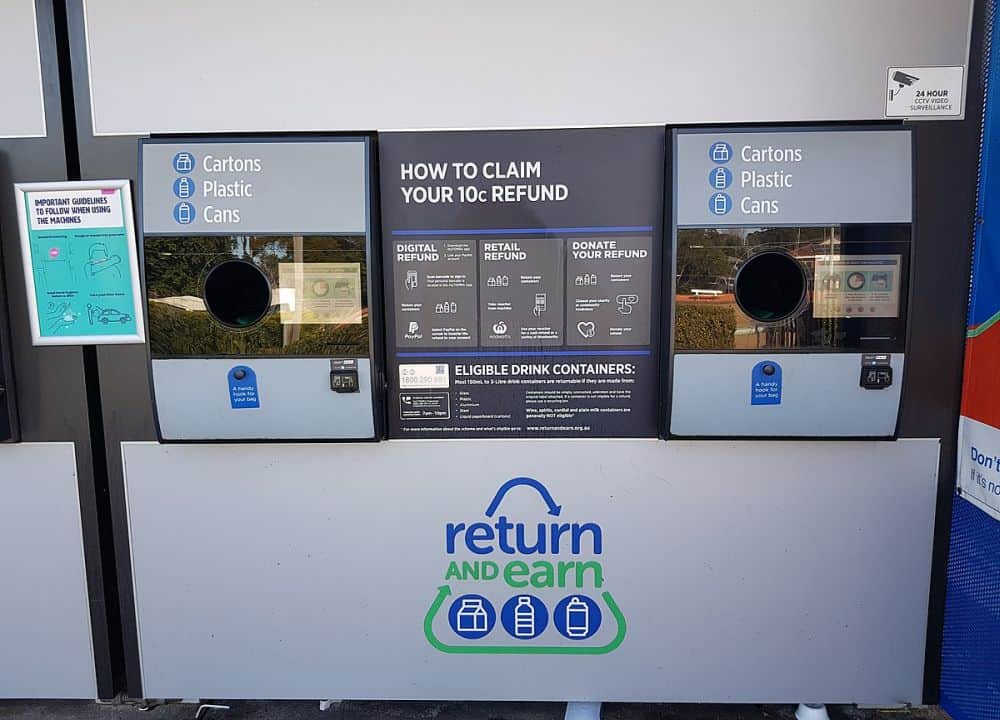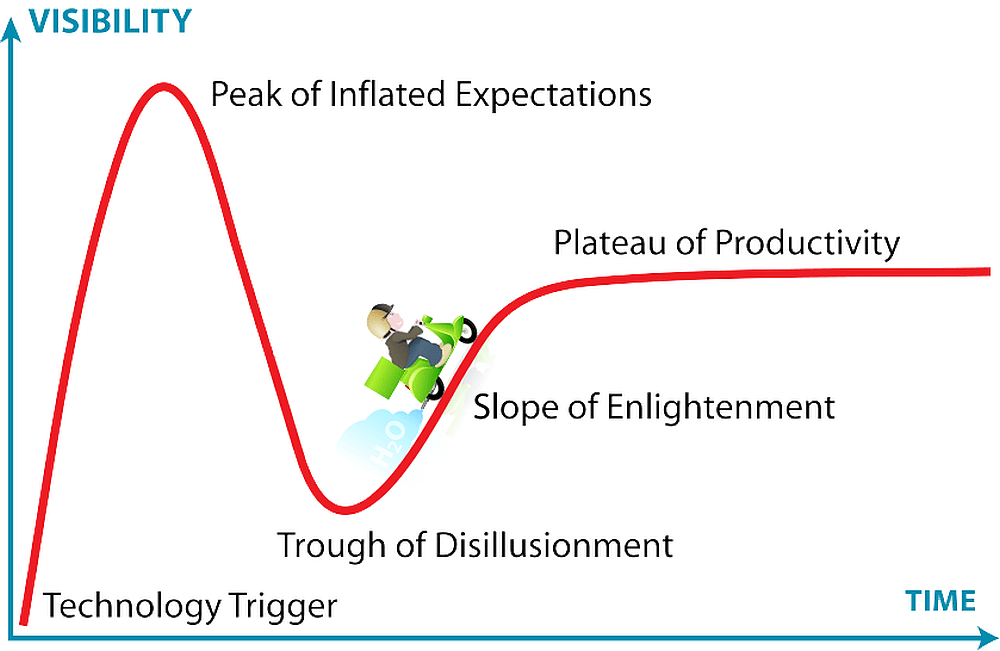
[Image above] Example of a “reverse” vending machine in Australia, which collects containers and prints out vouchers that can be redeemed for cash. Credit: Maksym Kozlenko, Wikimedia (CC BY-SA 4.0)
Around the world, there is growing consumer demand for implementation of deposit return schemes.
Deposit return schemes are a way of encouraging more people to recycle drinks containers. They work by adding a small refundable deposit to the price of a drink, which consumers get back when they return the empty drink container for recycling.
Germany is a leader in the field of deposit return schemes. Since the introduction of its program in 2003, the country boasts a return rate of more than 98%.
In March 2018, the United Kingdom government announced plans for a deposit return scheme based in part on Germany’s program. The plan originally aimed to include any single-use drink container, be it made from plastic, glass, or metal. However, in January 2023, the government announced that the scheme would be introduced in 2025 and would not include glass.
This removal of glass from the U.K. scheme has led to conflict over Scotland’s proposed return program.
Scotland is one of the four countries that comprise the U.K., with the others being England, Wales, and Northern Ireland. These countries operate under a unique form of government called devolution. This system allows Scotland, Wales, and Northern Ireland to have their own elected institutions, but these institutions must heed certain policies set by the U.K. government in Westminster (which is also responsible for policy in England).
In May 2019, the Scottish government revealed its design for a deposit return scheme, which the parliament then approved in March 2020. However, the “go live” date for the scheme was delayed until summer 2023 after lobbying from major retailers and drinks companies.
These groups argued that the requirement to place Scotland-specific machine-readable codes on containers would increase prices for businesses and consumers. The segment below from Scotland Tonight shows how Lorna Slater, Scotland’s circular economy minister who is coordinating deployment of the scheme, responded to these claims.

Credit: STV News, YouTube
Concerns over the financial implications of being a return point for containers were further exacerbated in March 2023. It came out that businesses may need to wait a full month to receive government reimbursement for customer refunds.
“…there is the real risk of thousands of stores closing due to cash flow issues or significant loss of footfall,” says Scottish Grocers’ Federation chief executive Pete Cheema in an insider.co.uk article.
In response to these concerns, in April 2023, newly installed Scottish first minister Humza Yousaf announced that the launch date for the deposit return scheme would be pushed back to March 2024. But another delay was right around the corner and revealed itself in May 2023.
For Scotland’s deposit return scheme to be implemented, the Scottish government needed an exclusion from the United Kingdom Internal Market Act 2020, which ensures businesses face the same post-Brexit rules across the U.K. As a Financial Times article explains, without an exclusion, “the scheme would be unviable as it would not apply to drinks bottled outside of Scotland, which make up the majority of sales in the country.”
On May 27, the U.K. government granted Scotland a partial exclusion, but it refused to grant an exception for glass. The government argued that such an exception would risk compromising the “interoperability” of other return schemes planned for England, Northern Ireland, and Wales.
NOTE: This argument ignores the fact that the Welsh government also plans to include glass in its deposit return scheme. In a BBC article published on Monday, Welsh climate change minister Julie James says the country still plans to roll out its scheme with glass included because “We don’t think we need the permission of the U.K. government to do that.”
On June 7, Scottish circular economy minister Lorna Slater announced that the deposit return scheme would be delayed until October 2025 at the earliest because of the U.K. government’s decision. Her presentation to the Scottish parliament announcing this delay is below.

Credit: The Scottish Sun, YouTube
Though some businesses are relieved by this delay, other shop owners are upset because they already made the investment to serve as a container return point. This delay means the investment is now money down the drain.
For example, in a recent Sky News article, Glasgow shop owner Mo Razzaq shared how he spent more than £10,000 removing an ATM machine and installing a “reverse” vending machine, which collects containers and prints out vouchers that can be redeemed for cash.
“That £10,000 we’re not going to get back … We’ve paid for a machine we can’t use,” he says.
Author
Lisa McDonald
CTT Categories
- Environment
- Market Insights


